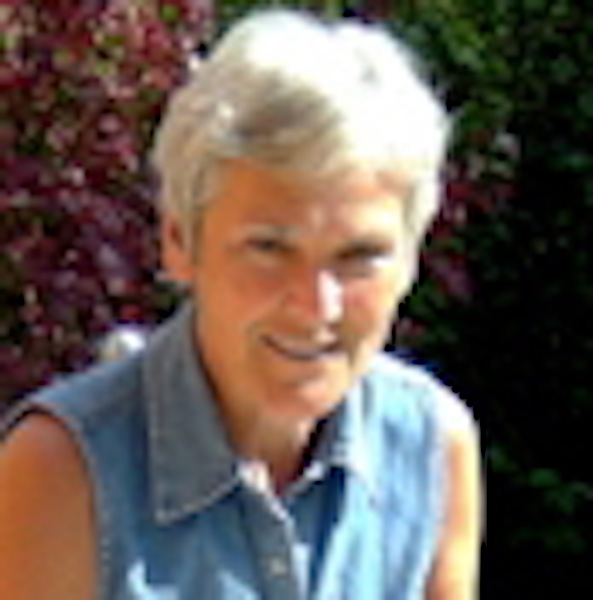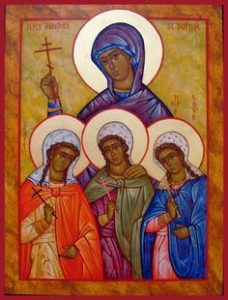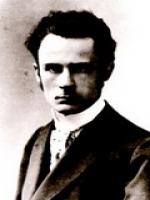C H R I S T A M U L A C K

MATRIARCHAL STRUCTURES IN THE BIBLE
"We all know the bible as one of the most patriarchal texts of Western tradition. Yet, the thorough study of these texts in combination with matriarchal studies brings forward some other aspects of biblical literature. We then come across old cultic passages with definite matriarchal contents. The discovery of these textural treasures allows us to identify a pre-Israelite Goddess underlying many texts coming from the culture of ancient Palestine which had a strong influence on the Israelite tribes immigrating into the area.
As a consequence, the conviction that Israel began with a patriarchal culture and society possessing a primordial monotheism has to be abandoned, even though the belief in an original patriarchy is actively promoted in ecclesiastical teachings and sermons from the pulpit. The prerequisite for this insight is a wide interdisciplinary knowledge which the theological research on the Hebrew Bible is lacking. This situation must be strongly criticized by contrasting the one-sided patriarchal dedication to "transcendence" with the matriarchal world view that can also be found in the bible."

Sophia and her three daughters Faith, Hope and Love
BIOGRAPHY
Christa Mulack, born 1943, is a German feminist theologist, educationalist, author of many books, and freelancing scholar giving lessons at different institutions and universities, who, out of her revisionist reading of the texts in the Bible has developed an interesting interdisciplinary merge of theology, psychology, sociology and the tracing of the matriarchal origin in the judeo-christianity texts expressed in the Bible, inspired specially by the German culture philosophist and theologian Otfried Eberz
In the chapter Die Matriarchatsforschung in der Diskussion - eine Verteidigung in the anthology Die Diskriminierung dew Matriarchatsforschung - Eine Moderne Hexenjagd, 2003 Christa Mulack gives a report of how she found her path to the subject of modern matriarchal studies. As a theologian and religion historian she encountered the issue of matriarchy when she was working with her dissertation: Die weiblichkeit der Gottes. Matriarchale Voraussetzungen dess Gottesbildes. (my transl: The Femininity of The God. Matriarchal prerequisites for the image of God) and already by her introductory study of theology and psychology noticed the strong androcentric bias regarding gender related issues, resulting among others in a tendency to idealise male and devaluate female behaviour, and usurping the honour of having created everything of cultural value at the expense of women.
In her initial studies in psychology she took part of the classical ideas of bevariorism, Freud, Adler and Jung and was for a while occupied with C.G. Jung´s analytical psychology, and was then specially influenced by the work of Erich Neuman 1905-1960, psychologist, philosopher, writer and student of Carl Jung, and his Great Mother, 1955, Zur Psychologie des Weiblichen and The Origins and History of Consciousness, 1949, and was thereby for there first time introduced to the existence of a ”matriarchal conscience” and matriarchal societies. In USA she got acquainted with Erich Fromm´s ideas, which by then still weren't´t known in Germany, and thereby an explicit appreciation of matriarchy and important references to research in the field. And from that moment on she was hooked on the track of interpretation of myths inspired by Bachofen. But the most important influence to her developing an increasingly explicit criticism of patriarchy, she is singling out the German philosopher of culture and theologian Otfried Eberz 1878-1958 and his books;
Vom Aufgang und Niedergang des männlichen Weltalters, 1931 (My transl; The Rise and Fall of the Male World Order)



She has also made journeys to Malta and Kreta and three journeys together with other women to "Das Land der Mütter" in Anatolien, to look for the vestiges of matriarchy in the archaeological findings, and has also visited the Khasi-people in Assam, which she describes as a people that still hasn't gone all the way through the transition from matriarchy to patriarchy, if though in late time through a lot of various kinds of changes.

Khasi-girls dancing
As all, or most, of the other scholars, critical of the since long outdated monolithic patriarchal paradigm in the humanities and social sciencies, it seems like neither Christa Mulack have been given the opportunity to have her income from a convenient academic employment, but having had to freelance for the financial support of her research on her own.
As shown before in the pages about Claude Lévi Strauss and Robert Briffault all of the scholars who oppose the disciplinary canon of status quo and its dogma about the Universality of Patriarchy, regardless of education and scientifical quality of their scholarship, are delineated as ”amateurs” and their works as ”unscientifical” and referred to in media and the most common encyclopaedias (as for example also even Wikipedia) in condescending and patronising terms, whereby ”critics” by young scholars who mostly doesn't seem to have a clue about how too direct relevant scientifically grounded reasoning, are quoted.
As Christa Mulack is mentioning herself in the book I have recently read: Die Diskriminierung der Matriarchatsforschung, Eine Moderne Hexenjagd, 2003, the scholars in the field of Modern Matriarchal Studies have to endure the most presumptuously barefaced lack of professionalism in the so called ”critics”, to which they are frequently exposed. And as a result they have to spend much of their valuable time, not only looking for how to finance their research and living, but also in refuting reasonings and mischievous rumours, that haven’t got one tiny little bit of relevance for what they are doing, but to greatest deal consist of projections from a non problematised patriarchal world view and look upon women and / or of projections by women who of one or the other reason has got personal problems in relation to their mothers or a neurotic relation to motherhood as a whole.
As Elin Wägner stressed already in the beginning of the 40s, women has never been welcome in the most prestigious fields of androcentric politics and science under other conditions, than to serve as its subduing assistants. And Christa Mulack notices exactly the same half a century later:
(More will come!)